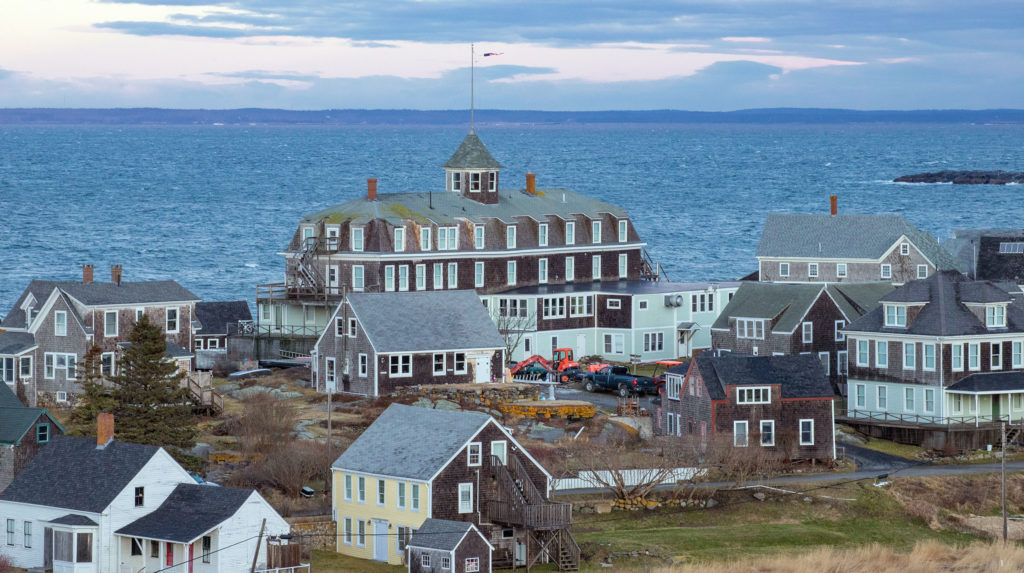For many of us, the word resiliency has taken on a new meaning. Prior to the coronavirus pandemic, for many of us who run small businesses, resiliency likely meant being able to withstand small fluctuations in sales, an uptick in supplier costs, or trying to determine when to offer a new product line.
We weren’t prepared for this.
In Maine’s seasonal economy, many rely on what we like to think of as the three-legged stool of seasonal work: a mixture of summer, winter, and year-round employment—or small businesses that contract and expand as the season allows. A downturn in one means that we try to increase sales in another. One leg gets a little wobbly, and we strengthen the others.
We never planned for all three legs to be swept out from under us.
Resilience has taken on a whole new meaning. It’s now about adaptation for survival.
For many, government programs like the Paycheck Protection Program (PPP) and the Economic Injury Disaster Loan (EIDL) have been incredibly helpful to many businesses. But we worry about how businesses that survive will adapt once those funds are no longer available. One of the most vulnerable parts of Maine’s economy are our artists and makers. Some have been able to access funding through various programs, but many have also begun to look at new and (dare I say it) creative ways to begin rebuilding and planning for their future.
One example of a business doing this right now is Winter Works Craft Cooperative on Monhegan Island. Unlike other islands in Maine, Monhegan has a uniquely high influx of tourism in the summer months. They receive more day-trip visitors in July and August than any other unbridged island in Maine. This allows for their seasonal businesses to thrive, despite a very small year-round and summer population (around 69 year-round residents and 105 summer residents). However, this means that the current pandemic is putting these businesses in a vulnerable position for the upcoming summer.
Winter Works Craft Cooperative has been in business since the 1980s in various locations around the island but has never sold online. The co-op, which usually supports 10-15 local Monhegan artists and makers, faced with the impending impacts of COVID-19, applied for and received a Business Resilience Grant through the Island Institute’s Tom Glenn Community Impact Fund to help move their store online.
“Our goal is to create a ‘virtual Winter Works’ that allows our customers to have the same experience they would normally have in our shop. Since the health concerns of COVID-19 have emerged, we decided our small shop wouldn’t be a safe environment for both staff and customers. We hope that this new online store can open up new possibilities for our co-op members and potentially be something we carry on into the future,” said Carley Feibusch, a member of Winter Works Craft Cooperative.
This is a great example of one businesses shift supporting many community members, which in turn creates a more resilient economy.
In a 2016 article in The New Yorker, How People Learn to Become Resilient, Maria Konnikova found that more resilient individuals are able to separate themselves from the situation, no matter how dire it may seem, and understand that they are the only ones who can react positively, adapt to the situation, and look for solutions. Making that initial choice of your next action is something only you can do, it isn’t something someone can do for you.
Like the artists and makers of the Winter Works Craft Cooperative, you have to start somewhere. Start where you are, there is no other place. Change is hard, and the loss of how we used to do things needs to be recognized and mourned. As we recover—and it is going to be a long recovery—we need to recognize this was not our fault. This virus knocked the stool out from under us, and we need to use the tools and resources available through the Island Institute and other partners to start down a new path.
This is just one part of the learning that our Small Business Team is undertaking. In addition to checking in constantly with different industries up and down the coast and conducting interviews for our new podcast series, we are drawing together business leaders who have been through huge shifts in their industry or scaled a business in uncertain times. We’re looking for advice from those who often look beyond the horizon, and can see new opportunities and pitfalls from a different perspective, to provide some insight from the 30,000-foot level when most of us are struggling at sea level. As this conversation builds, we will be sharing out the lessons learned and new initiatives. If you are (or know of) a business leader who might fit that profile, please let us know!
In the meantime, take care of yourself, cherish those around you, and be patient with those struggling to make sense of this new reality. Be kind to one another.
Additional Resources
Resources and Links
- Small Business Support Survey
- Business Resilience Grant Application
- Business in Uncertain Times Podcast
- Small Business Support Survey
What We Do
The Island Institute’s Small Business Team provides business and financial planning to help entrepreneurs navigate the complexities of starting and growing a business. For more information on our small business support services, feel free to contact Craig Olson.
Commercial Currents is an email and blog newsletter that shares buoyant stories from Maine’s island and coastal communities about economic stability and resilience. To find archived editions, go to islandinstitute.org/blog/economic. Subscribe here.


